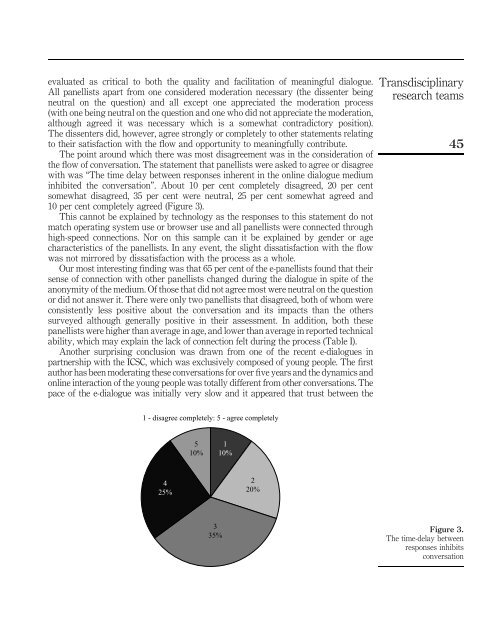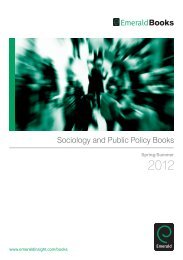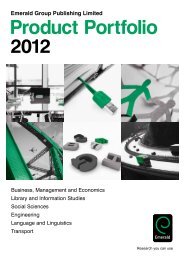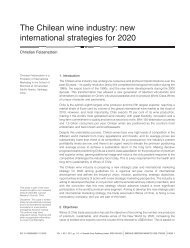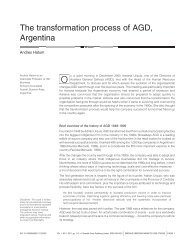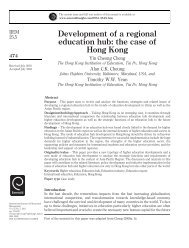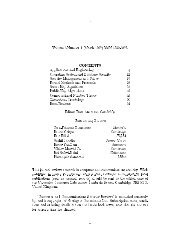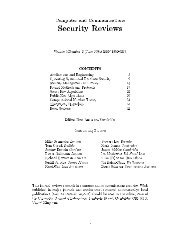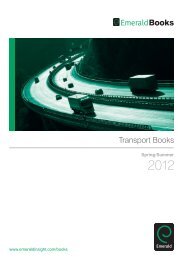Facilitating transdisciplinary sustainable development research ...
Facilitating transdisciplinary sustainable development research ...
Facilitating transdisciplinary sustainable development research ...
Create successful ePaper yourself
Turn your PDF publications into a flip-book with our unique Google optimized e-Paper software.
evaluated as critical to both the quality and facilitation of meaningful dialogue.<br />
All panellists apart from one considered moderation necessary (the dissenter being<br />
neutral on the question) and all except one appreciated the moderation process<br />
(with one being neutral on the question and one who did not appreciate the moderation,<br />
although agreed it was necessary which is a somewhat contradictory position).<br />
The dissenters did, however, agree strongly or completely to other statements relating<br />
to their satisfaction with the flow and opportunity to meaningfully contribute.<br />
The point around which there was most disagreement was in the consideration of<br />
the flow of conversation. The statement that panellists were asked to agree or disagree<br />
with was “The time delay between responses inherent in the online dialogue medium<br />
inhibited the conversation”. About 10 per cent completely disagreed, 20 per cent<br />
somewhat disagreed, 35 per cent were neutral, 25 per cent somewhat agreed and<br />
10 per cent completely agreed (Figure 3).<br />
This cannot be explained by technology as the responses to this statement do not<br />
match operating system use or browser use and all panellists were connected through<br />
high-speed connections. Nor on this sample can it be explained by gender or age<br />
characteristics of the panellists. In any event, the slight dissatisfaction with the flow<br />
was not mirrored by dissatisfaction with the process as a whole.<br />
Our most interesting finding was that 65 per cent of the e-panellists found that their<br />
sense of connection with other panellists changed during the dialogue in spite of the<br />
anonymity of the medium. Of those that did not agree most were neutral on the question<br />
or did not answer it. There were only two panellists that disagreed, both of whom were<br />
consistently less positive about the conversation and its impacts than the others<br />
surveyed although generally positive in their assessment. In addition, both these<br />
panellists were higher than average in age, and lower than average in reported technical<br />
ability, which may explain the lack of connection felt during the process (Table I).<br />
Another surprising conclusion was drawn from one of the recent e-dialogues in<br />
partnership with the ICSC, which was exclusively composed of young people. The first<br />
author has been moderating these conversations for over five years and the dynamics and<br />
online interaction of the young people was totally different from other conversations. The<br />
pace of the e-dialogue was initially very slow and it appeared that trust between the<br />
1 - disagree completely: 5 - agree completely<br />
4<br />
25%<br />
5<br />
10%<br />
3<br />
35%<br />
1<br />
10%<br />
2<br />
20%<br />
Transdisciplinary<br />
<strong>research</strong> teams<br />
45<br />
Figure 3.<br />
The time-delay between<br />
responses inhibits<br />
conversation


